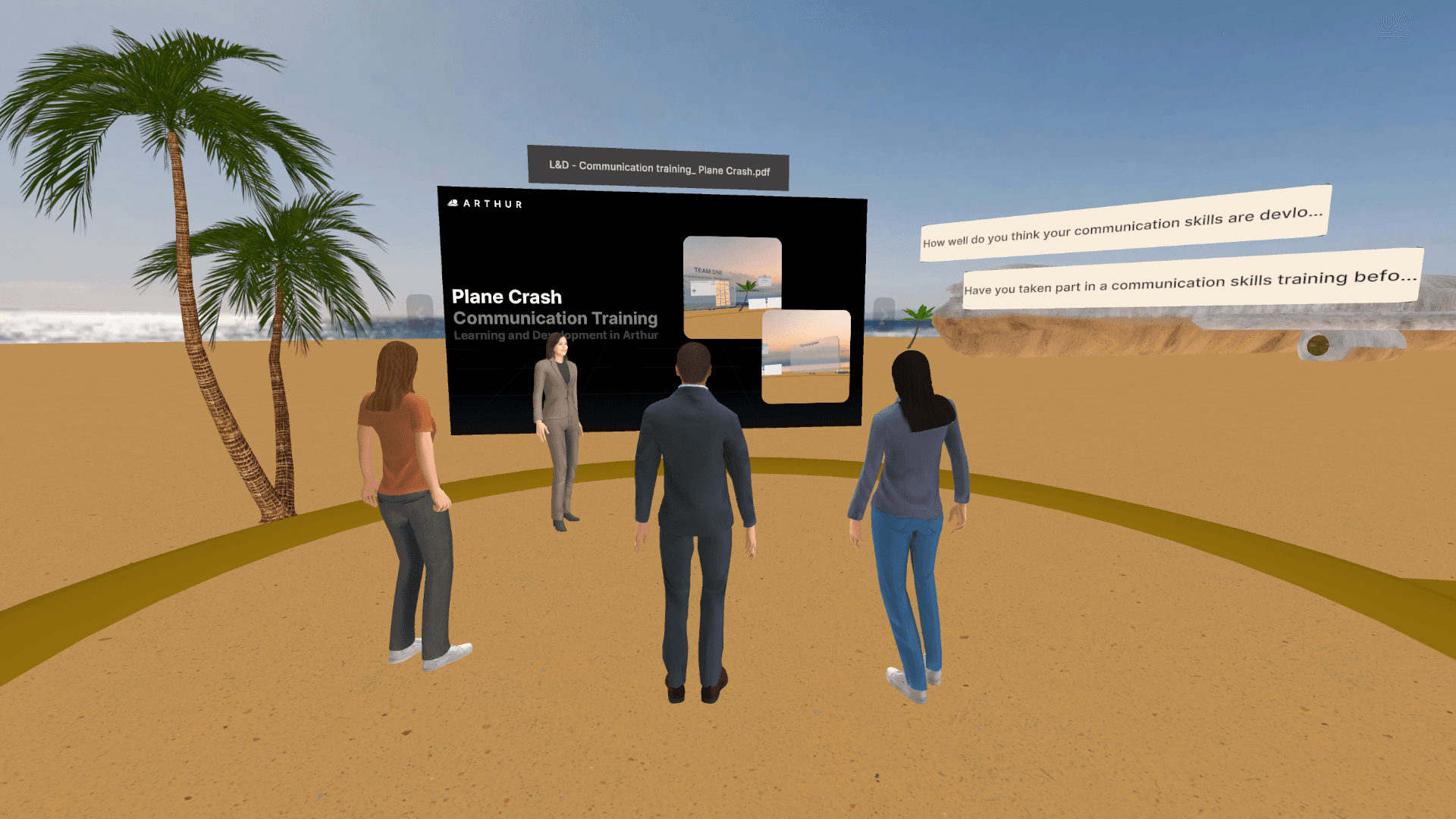The Power of Soft Skills Training in VR: Enhancing Learning and Engagement

The shift towards distributed work has presented unique challenges for traditional training methods. As organizations strive to develop their workforce's soft skills, virtual courses have emerged as a popular solution. However, these courses have their limitations, including low attention spans, high distractions, and limited interaction possibilities. To overcome these challenges, a more powerful tool is needed. Could Virtual Reality be the answer? In this blog post, we will explore the benefits of Soft Skills training in VR and how it can revolutionize the way we learn.
The Impact of VR Training
According to research conducted by PwC, VR training offers several advantages over traditional classroom learning and e-learning. Participants in VR training were found to be 4 times faster at acquiring new skills compared to classroom learners. They also demonstrated 4 times more focus than their e-learning counterparts. Moreover, VR learners were 275% more confident in applying the skills they learned, and they reported being 3.75 times more emotionally connected to the content than classroom learners. These findings highlight the potential of VR as a highly effective training tool.
Advantages of Soft Skills Training in VR:
- Recreating Complex Training Simulations: VR provides the ability to recreate complex real-life scenarios, allowing participants to experience and learn from challenging situations in a safe and controlled environment. This enhances their problem-solving abilities and prepares them for real-world challenges.
- Enhanced Engagement and Interactivity: VR presents information in an interactive and engaging way. Participants can actively engage with the virtual environment, manipulating objects, interacting with avatars, and collaborating with team members. This immersive experience boosts engagement and deepens the learning process.
- Cost-Effectiveness: VR learning is a cost-effective solution compared to traditional in-person training. It eliminates the need for travel expenses, venue rentals, and physical training materials. With VR, training can be conducted remotely, reducing costs while maintaining high-quality learning experiences.
- Increased Frequency for Remote Learning: VR training allows organizations to provide more frequent training sessions, especially for remote teams. With the flexibility of VR, participants can access training modules at their convenience, ensuring continuous skill development and reinforcement.
- Fostering Creativity and Innovative Thinking: VR environments encourage participants to think outside the box by providing unique opportunities for exploration and experimentation. By simulating real-world challenges, VR training fosters creative problem-solving skills and nurtures innovative thinking.
Soft Skills Training Examples in Arthur's VR Solution:
- Problem Solving: Design Thinking Training: In this VR training, participants are introduced to the principles of Design Thinking, a human-centered approach to problem-solving. They are guided step by step through solving specific challenges, fostering critical thinking and innovation.
- Communication Training: Plane Crash: In this immersive VR experience, participants find themselves on a deserted island after a plane crash. Teams must collaboratively analyze the critical situation, communicate effectively, discuss options, and make decisions to survive. This training hones communication, teamwork, and decision-making skills.

- Leadership Training: Coach the Builder: This VR exercise divides participants into different roles within a team, including a leader, delegator, builder, and note-taker. The leader has the responsibility of guiding the team to build an object based on a desired result they alone can see. This training enhances leadership, delegation, and communication skills.
- Team Work: Team Canvas: Team Canvas is a VR exercise designed to align team members by facilitating discussions on roles, goals, values, strengths, and weaknesses. By enhancing teamwork, cohesion, and performance, this training creates a productive team culture.
One of the training participants from our partner mentioned that "VR training provided a unique opportunity to step out of my comfort zone and tackle complex challenges. The interactive nature of the experience challenged me to think creatively and collaborate effectively, resulting in significant growth in my problem-solving abilities." Soft skills are crucial for success in today's evolving work landscape, and virtual reality offers a transformative approach to training in these areas. By leveraging VR, organizations can enhance engagement, interactivity, and learning outcomes. VR provides a cost-effective solution, encourages innovative thinking, and positions enterprises at the forefront of innovation. As the remote and hybrid work environments continue to expand, incorporating VR into soft skills training can provide a competitive advantage in nurturing a highly skilled and adaptable workforce.